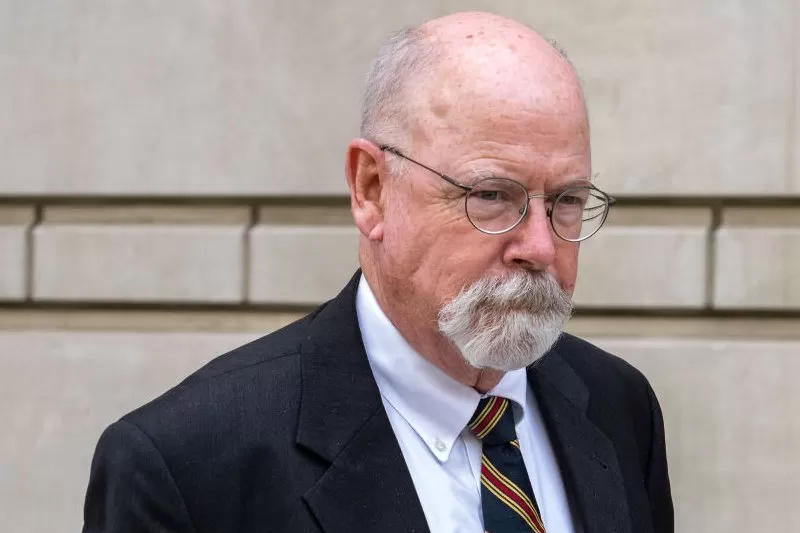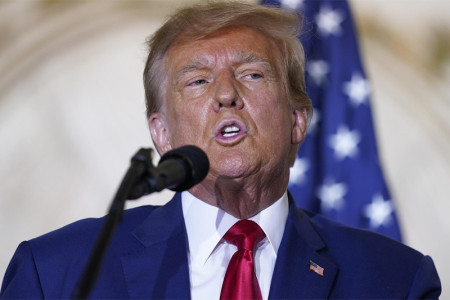In a 306-page report, special counsel John Durham said the agency's inquiry had lacked "analytical rigor".
He concluded the FBI had not possessed "actual evidence" of collusion between Donald Trump's campaign and Russia before launching an inquiry.
The FBI said it had addressed the issues highlighted in the report.
In the report, Mr Durham - who was appointed by then-Attorney General William Barr in 2019 - accused the FBI of acting on "raw, unanalysed and uncorroborated intelligence".
Among the investigative mistakes it made were repeated instances of "confirmation bias", in which it ignored information that undercut the initial premise of the investigation.
The report noted significant differences in the way the FBI had handled the Trump investigation when compared with other potentially sensitive inquiries, such as those involving his 2016 electoral rival Hillary Clinton.
Mr Durham noted that Mrs Clinton and others had received "defensive briefings" from the FBI aimed at "those who may be the targets of nefarious activities by foreign powers". Mr Trump had not.
"The Department [of Justice] and the FBI failed to uphold their important mission of strict fidelity to the law," the report concluded.
In a statement, the FBI said it had "already implemented dozens of corrective actions".
"Had those reforms been in place in 2016, the missteps identified in the report could have been prevented," the statement added.
 Special Counsel John Durham was appointed by then Attorney General William Barr in 2019.
Special Counsel John Durham was appointed by then Attorney General William Barr in 2019.
The FBI investigation into alleged ties between the Trump campaign and Russia, which was carried out by Special Counsel Robert Mueller, led to dozens of criminal charges against Trump campaign staff and associates for crimes including computer hacking and financial crimes.
It did not, however, find that the Trump campaign and Russia had conspired together to influence the election.
Writing on his social media platform, Truth Social, Mr Trump said the Durham report showed that the "American public was scammed". He cited the report's conclusion that there had not been enough evidence to warrant a full investigation by the FBI. Mr Trump has long claimed that members of the "Deep State" are targeting him unfairly.
Last year, Mr Trump said he believed the Durham report would provide evidence of "really bad, evil, unlawful and unconstitutional" activities and "reveal corruption at a level never before seen in our country".
The Durham report falls short of the blockbuster revelations and prosecutions that some Trump allies hoped for from the inquiry.
The four-year investigation has resulted in three prosecutions. They include an FBI attorney who pleaded guilty to altering evidence while applying for permission to eavesdrop on a former Trump campaign official.
Two other people were acquitted on charges of lying to the FBI.
The former president cited some court filings by the Durham team as part of a lawsuit he filed against Mrs Clinton and several other Democrats and government officials, alleging that they had plotted to undermine his 2016 presidential bid by spreading rumours about his campaign's ties to Russia.
A judge dismissed the lawsuit as frivolous in January and ordered Mr Trump to pay nearly a million dollars in penalties.
Mr Durham and his investigation are not likely to disappear from the national headlines in the immediate future.
Shortly after news that the report would be publicly released, House Judiciary Committee Chairman Jim Jordan announced that he would be calling the US former attorney to testify before Congress about his work.
BBC


